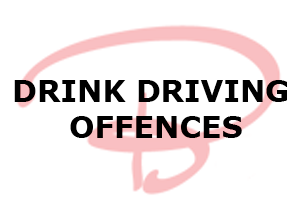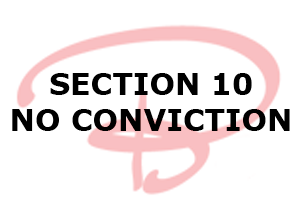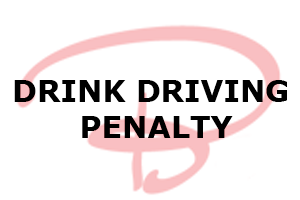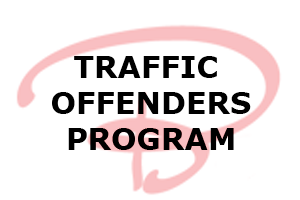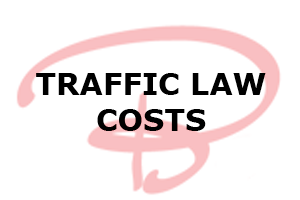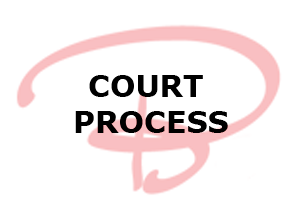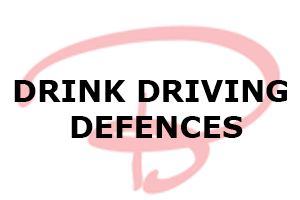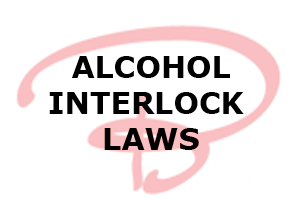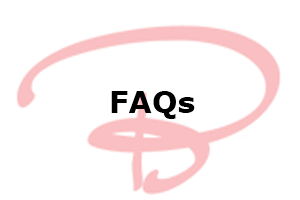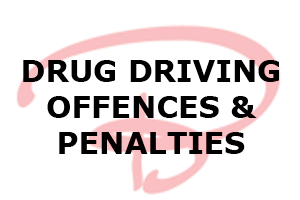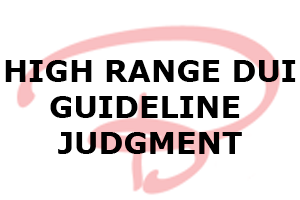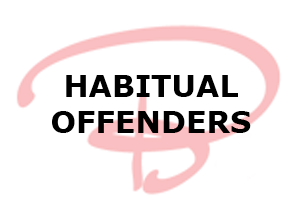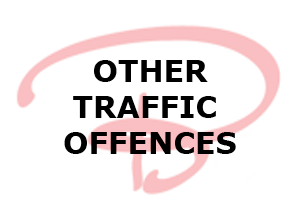NSW High Range Drink Driving Guideline Judgment
In New South Wales the Court of Criminal Appeal, which is the highest criminal law Court in the state, in 2004 handed down a Guideline Judgment providing all of the Courts in NSW with a guideline as to how serious drink driving matters should be dealt with in relation to penalties. The Guideline Judgment also looks at the various different factors which play a role in any Prescribed Concentration of Alcohol (PCA) offence and how those factors should influence the Courts decision on sentence.
Keep in mind that the Guideline Judgment for High Range PCA Offences is just that, it is a guideline and should only be used to guide a Court in dealing with such a matter as opposed to being used as set in stone style of approach to the sentencing process.
Important Features of the High Range PCA Guideline Judgment
When handing down the Guideline Judgment there were several important features highlighted by the NSW Court of Criminal Appeal.
Second or subsequent offence
"An offence is a second or subsequent offence only if, within the period of five years immediately before a person is convicted of the offence, the person was convicted of another offence against the same provision of a major offence.
"This means that a person who has been charged with two counts of high range PCA but not sentenced for either is to be regarded as a first offender."
Traffic Offender Program
In relation to the common reformative practice of PCA offender completing some form of Traffic Offender Program the following remarks were made by the NSW Court of Criminal Appeal during the handing down of the High Range PCA Guideline Judgment regarding their effect and consideration on a sentence.
"There is evidence that suggests that attendance at such a program lessens the likelihood of reconviction for drink driving. This may be not only because of the educative value in causing the offender to appreciate the consequences of such conduct but also because of the humiliation experienced by an offender in being required to attend such a program."
"Notwithstanding the undoubted beneficial affect upon a driver of participation in a driver education program, that fact can have little impact, in my view upon the appropriate sentence to be imposed for an offence of High Range PCA in the usual case, except in so far as the length of disqualification may be concerned or the amount of a fine. The offence in general is so serious and the criminality involved in even a typical case so high that, in my view the participation of the offender in a program cannot be seen as an alternative to punishment for an offence of this nature. In particular there is no warrant at all for the making of an order under Section 10 simply because the offender has participated in such a program or is to do so as part of the conditions of a bond."
Thus, the Guideline Judgment says that participation in the Traffic Offender Program can have an affect on the period of licence disqualification and financial penalty that the Court may seek to impose, however completion of such a program will have little impact on other aspects of the sentencing procedure and penalties the Court will seek to impose for a High Range PCA offence
Reason for consuming alcohol
The reason that an offender provide for consuming alcohol prior to the offending offer little weight or significance to the consideration of the sentencing process. Regardless of whether the offender had been at a party, a funeral, was an alcoholic or drank because of mental health issues are of little to no significance.
Need for a license
When considering an offenders need to be able to hold a valid drivers licence the NSW Court of Criminal Appeal did indicate that due consideration would be given to this on sentence in relation to the length of time that a licence disqualification would be made for. The Court made the following statements regarding this issue:
"Licence disqualification is such a significant matter and can have such a devastating affect on a person's ability to derive income and to function appropriately within the community that it is a matter which, in my view, must be taken into account by a court when determining what the consequences should be, both penal and otherwise for a particular offence committed by a particular offender. This is not to say that the sentencing discretion should be controlled by one particular factor alone, such as the offender's need for a licence or the consequences of the offender of being disqualified for a significant period."
Orders Under Section 10 of the Sentencing Act
A section 10 dismissal is where a Court in NSW has the discretion to dismiss a charge without proceeding to conviction. Such a course is reserved for exceptional cases and is considered the most lenient penalties available on a plea or finding of guilt.
The NSW Court of Criminal Appeal through the High Range PCA Guideline Judgment indicated that a section 10 dismissal is a sentence option that is available to an offence of High Range PCA regardless of the high level of objective seriousness involved.
However, utilizing such discretion on sentence for a High Range PCA offence must be rare and must be exceedingly rare for a second or subsequent PCA offence.
Whilst each case is to be considered on its own merits the circumstances under which a section 10 should be considered must be so exceptional. For an example, there was an emergency, an urgent or unforeseen circumstance which was so exceptional that the Court believes that little options were available to the offender. Even if such exceptional circumstances can be shown the discretion is always up to the sentencing Court.
The High Range PCA Guideline Judgment in NSW
The NSW Court of Criminal Appeal found that there were a number of factors that the Court considered to make up an “ordinary” case of high range PCA. These factors of an ordinary case of high range PCA include:
- Drove to avoid personal inconvenience or did not believe that they were affected by alcohol.
- Detected by a random breath test.
- Has prior good character.
- Has nil, or a minor, traffic record.
- Licence was suspended on detection.
- Plea of guilty.
- Little or no risk of re-offending.
- Would be significantly inconvenienced at loss of licence.
These factors handed down by the Court fail to consider the various levels of a persons good character, their prior traffic record and other subjective features such as a personal mental and physical health.
The Court of Criminal Appeal delivered the following guidelines:
(1) In an ordinary case of an offence of high range PCA:
an order under s 10 of the Sentencing Act will rarely be appropriate;
- a conviction cannot be avoided only because the offender has attended, or will attend, a driver education or awareness course;
- the automatic disqualification period will be appropriate unless there is a good reason to reduce the period of disqualification:
- a good reason under (iii) may include:
(a) the nature of the offender's employment;
(b) the absence of any viable alternative transport;
(c) sickness or infirmity of the offender or another person.
(2) In an ordinary case of a second or subsequent high range PCA offence:
- an order under s9 of the Sentencing Act will rarely be appropriate;
- an order under s10 of the Sentencing Act would very rarely be appropriate;
- where the prior offence was a high range PCA, any sentence of less severity than a community service order would generally be inappropriate.
(3) The moral culpability of a high range PCA offender is increased by:
- the degree of intoxication above 0.15;
- erratic or aggressive driving;
- a collision between the vehicle and any other object;
- competitive driving or showing off;
- the length of the journey at which others are exposed to risk;
- the number of persons actually put at risk by the driving.
(4) In a case where the moral culpability of a high range PCA offender is increased:
- an order under 9 or s 10 of the Crimes (Sentencing Procedure) Act would very rarely be appropriate;
- where a number of factors of aggravation are present to a significant degree, a sentence of any less severity than imprisonment of some kind, including a suspended sentence, would generally be inappropriate.
(5) In a case where the moral culpability of the offender of a second or subsequent high range PCA offence is increased:
- a sentence of any less severity than imprisonment of some kind would generally be inappropriate;
- where any number of aggravating factors are present to a significant degree or where the prior offence is a high range PCA offence, a sentence of less severity than full-time imprisonment would generally be inappropriate.
CONTACT US
WHY CHOOSE OUR NSW TRAFFIC LAWYERS?
BRISBANE • GOLD COAST • SYDNEY
Related Topics
DRINK & DRUG DRIVING
TRAFFIC LAWYERS
COURTS WE ATTEND
DUI RESOURCES
MORE INFORMATION
Boorman Lawyers NSW & QLD Solicitors
Brisbane QLD 4000
Gold Coast QLD 4217
Sydney NSW 2000
1300 941 900
Office Hours:
Monday: 8:30am-6pm
Tuesday: 8:30am-6pm
Wednesday: 8:30am-6pm
Thursday: 8:30am-6pm
Friday: 8:30am-6pm
5 Star Google Reviews
![]()

